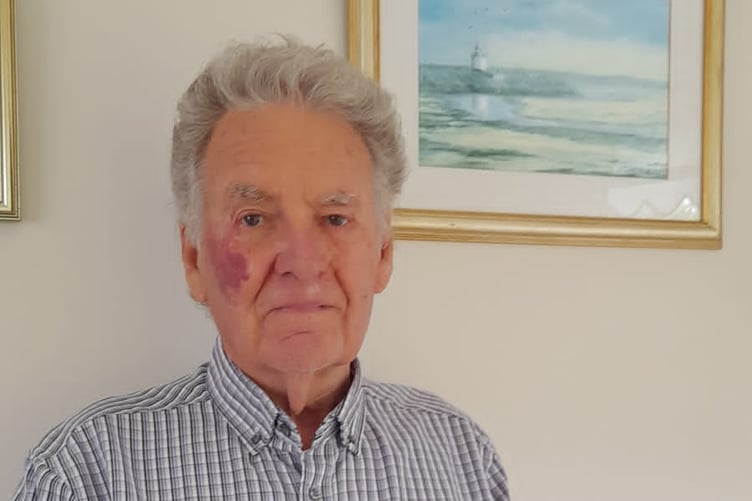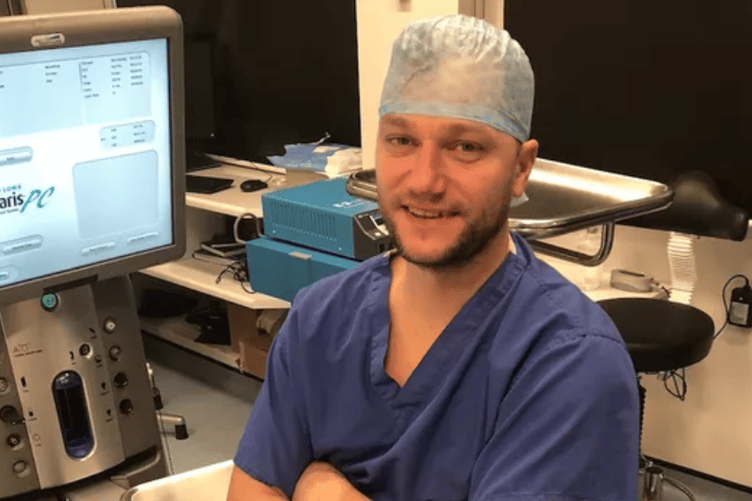A LOCAL consultant is calling for urgent action during Cataract Awareness Month.
New figures reveal that more than 50% of high-risk ophthalmology patients are now waiting longer than clinically safe for NHS treatment — with many left facing irreversible vision loss.
Over 100,000 people in Wales are currently waiting for eye care., nearly 47,000 have already waited more than 36 weeks and target treatment times are being breached for over 8,000 patients in Hywel Dda.
Patients marked as “Health Risk Factor R1”, whose delays could lead to permanent harm, now make up the majority of those waiting.
In response to the mounting crisis, Mr Sam Evans, a Consultant Ophthalmologist based in Carmarthen, is calling for a wider conversation around faster access to treatment, particularly for those at highest risk.
“I’m frustrated,” said Mr. Evans. “We’re seeing avoidable sight loss because people simply cannot get seen in time. Cataracts are treatable, but patients don’t need to wait as long as they are, and are coming to harm with these long waits.”
Mr Evans offers a unique “see and treat” private cataract service in West Wales, working closely with local optometrists who provide detailed clinical referrals. Initial consultations are conducted remotely by telephone, meaning most patients only need to visit the hospital once. This streamlined approach allows him to offer surgery within just 2–4 weeks of referral.
Furthermore, Mr Evans has been carrying out bilateral same day surgery for cataracts for the last five years and is convinced by the safety and efficiency of this approach. “In many cases patients only need to come to the hospital once - for surgery on both eyes, and need no further visits. This approach is fantastic for older patients who struggle to get to the hospital for repeated visits.”
His approach is proving especially helpful in rural areas like Carmarthenshire, Pembrokeshire and Ceredigion, where patients often live far away from local hospitals with poor access to transport.

For Ron Jenkins, the wait for cataract surgery stretched to over two and half years:
“After waiting over two years on the NHS list, I was hesitant to go private but my vision was getting worse and affecting my daily life. I wasn’t sure about having a phone assessment at first, but it worked brilliantly. I was offered a one-stop visit for assessment and surgery, saving me a 55-mile round trip. The care was excellent, the surgery painless, and I’m now driving at night and reading fine measurements again, life back to normal!”
Ron’s story is not unique, across South Wales, particularly in rural communities where hospital access is more difficult, elderly patients are falling through the cracks.
With June marking Cataract Awareness Month, local professionals hope the issue receives renewed national attention.
“Awareness campaigns matter — but awareness alone isn’t enough,” said Mr Evans. “We need real action. The solutions exist, but need to be put into place at scale.”
To learn more about the service that Sam Evans provides, visit https://www.eyesurgery.me/ .


.jpeg?width=209&height=140&crop=209:145,smart&quality=75)


Comments
This article has no comments yet. Be the first to leave a comment.